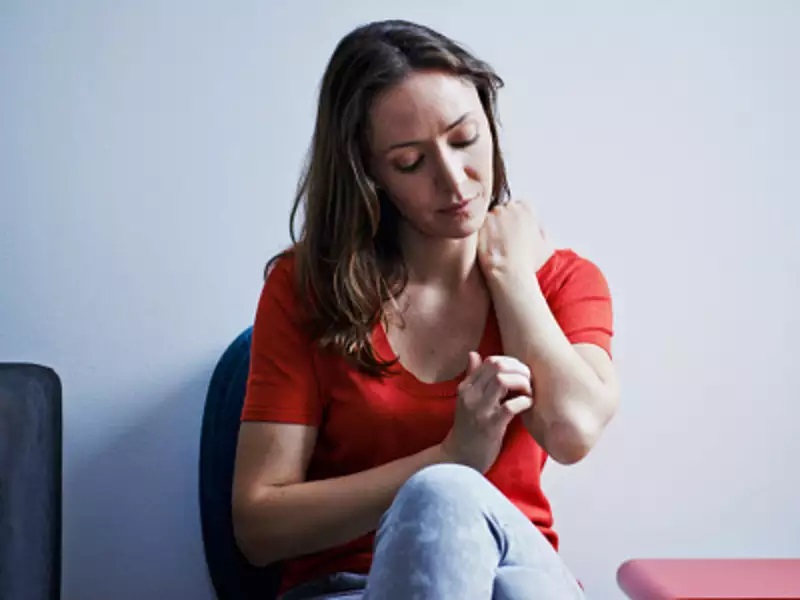Don’t Scratch! What to Do When Eczema Itches

Eczema is a medical condition of skin inflammation also known as dermatitis that commonly affects up to one in five people and happens at any age from mild to severe. Eczema is a genetic flaw that occurs inside the body due to abnormality of the skin’s barrier function and the effect profoundly can be seen at the outer part of the body for example skin itchiness, dryness, rashes and usually form patches. Eczema can be triggered from external factors, for example environmental irritants and allergens. It can affect somebody with underlying conditions and the allergies can make the symptoms worse. Some people are allergic to substances for example perfumes, detergents, disinfectants, chemicals, foods, dust mites, pets, pollen or changes in temperature can also be harmful to certain people. Do not scratch your skin if you have eczema because it can cause bleeding and might result in the formation of scars. Eczema requires intensive treatment and care. You can seek dermatologist help to get a better understanding. Find doctor specialised in skin conditions near you if you have alarming symptoms.
1) Moisturize your skin
There are many ways to treat eczema which really start with choosing the right skincare. You can prevent skin itchiness if your skin is well hydrated. Make sure you know your skin type before purchasing any skincare either it is dry, oily or combination skin. Most eczema patients experience dry and sensitive skin. Every skin type requires different formulations of ingredients. The best way is to consult a dermatologist to get the right prescriptions for your skin needs. Emollients are special medical moisturizers that can be used to treat mild to moderate forms of eczema. Emollients are different from the commercial moisturizers because they are free from any harmful substances such as fragrance, alcohol, chemicals or additives. They also come in different forms for example gels, ointments, creams, lotions and sprays. The function is to lock the water onto the skin to prevent water loss and prevent dry skin associated with eczema.
2) Medications
Over-the-counter allergy medicines also for example antihistamine can be consumed orally such as chlorpheniramine, cetirizine, fexofenadine, diphenhydramine. These medicines can help you to encounter allergic reactions in the short term and treat you in a quick fix. However, this medication can cause drowsiness so it is suggested for you to consume before you sleep. Topical corticosteroid or hydrocortisone creams also can help relieve the main symptoms of eczema. Steroids act by reducing inflammation. Eczema also can lead to infections caused by a bacteria called staphylococcus These kinds of infections can spread rapidly over the skin in a person with eczema and cause sudden skin itchiness. Doctors normally will prescribe with antibiotics if eczema occurs alongside bacterial skin infection. Please take note that a control medicine can temporarily help to reduce the pain but you can’t depend on it in the long run. It is important to be monitored by your doctor to avoid any potential side effects. The doctor will prescribe the concentration needed depending on the type of eczema, age and severity.
3) Change your diet
Practicing a healthy diet is so obvious but it might be the best thing for your body. Try to cut off sugars, reduce cholesterol, reduce salt intake and avoid junk or processed food. Consume more fruits and vegetables. Avoid dairy products, for example cheese, milk, yogurt, chocolate because it contains high levels of histamine which may lead to allergies. Monitor and notice what kind of foods that you eat may trigger eczema. Certain foods can terribly cause you harm in an instant and worsen the symptoms. Hence you must know it very well and avoid it at all costs.
4) Drink a lot of water
Drinking a lot of water can help in combating eczema. It would get rid of all the toxins inside your body. You can also take a lukewarm bath 10-15 minutes per day to keep your body healthy and hydrated. It may help you to feel at ease and promote relaxation. You are also encouraged to avoid excessive sweating or overheating. Sudden changes in temperature can promote symptoms. Take note what kind of environmental factors can trigger the eczema for example molds, mites or dander. If you follow all the simple precautions, eczema can be controlled and reduced.
It’s advisable to take Covid 19 Vaccine.









